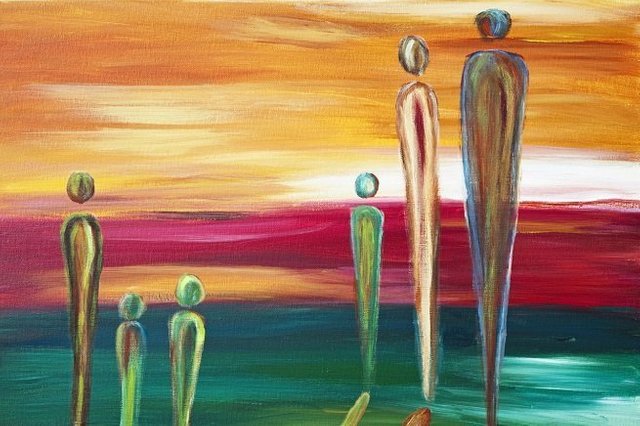The question of the meaning of life in the postmodern scene /Part 3/
It is difficult to challenge the self-evidentness of the meaning of life in the religious paradigm that determines the attitudes and problems of Western societies before the processes of secularization. The pessimism of the religious man, starting from Job and Ecclesiastes to Pascal and Shakespeare, without forgetting the ancient Greek tragedy, is a tension inside the faith and the social order that is still far from shaking the conviction that man is at home space and in the sociable. Tragic fate, impotence, death, suffering are not only placed in the comfort of theology and sociodemic, but they still retain the question of life more in the terms of good and evil than in the terms of "do you labor?" . Even if the latter sneak into the concerns of the Stoics, Pascal and Shakespeare, it is too far ahead of time and, in this sense, still unpopular as a general thinking practice. When faith is shaken by personal or public drama, the model of social relations saves the meaning and I from "falling into nothingness." On the one hand, the steady and thorough oversight of the community guides individual behavior and, on the other hand, the unwavering sense of belonging to the social whole obstructs the possibility of articulating personal anxieties as unique and fulfilled with meaning other than that of others. If God's good plan is clouded in the perspective of individual consciousness, it remains the firm foundation of traditional family and social ties. The moral instructions given by the predecessors are an additional protective belt against the devaluation of life in the event that the difficulties of existence and of the official religious doctrine question the ultimate basis of human existence.
Heroic and feudal societies organize the meaning of existence not only through religious rituals and awe, but also through the appeals for mastering and demonstrating superb qualities, arêtes, which seem to be a potent psychological resource for experiencing social play "seriously" and hence putting social merit and moral honesty at the center of the question of life. The theme of good life, which sets in with the beginning of modern society and otherwise occupies a priority place in the moral ethics and morality, generates a vision of human life through which man can construct time narratively. Basically, lists of virtues that legitimate merit and excellence engage the community in a race to transform life into history from moral achievements advancing to the cause of social and moral prestige. Tackling difficulties is largely a moral test that is rewarded, if not without a doubt by God, by the community. The narrative, referring to God's goals or community goals, ensures a sense of consistency and an escalating expectation of culmination, primarily because it does not belong to an autonomous consciousness and imagination, but because it is a form of collective creativity (the opposite of the pluralistic form of survival of life and time).
However, the narrative model of life is only possible in the context of a stable social structure in which the concept of good and vision of community tasks is shared and implies a high degree of solidarity (and collective creativity), mainly stemming from the teleological platform. In times of crisis, when the Telos, Aristotelian or Christian, is experiencing episodes of withdrawal from official doctrine, then some variant of Stoicism comes to the fore. And along with this, there is the possibility of devaluation of the social game and the resulting stimuli for life. The Stoic format of lifting the question of life, the question of meaning is the result of the social unsuitability of the ethics of good life. If we use McIntyre's logic to raise the question of meaning, we will come to the conclusion that where there is no public interest in the refinement and practice of virtues, there should also be a deficiency in the sense of self-understanding of the merits of life. In societies of moral disorder and deprived social solidarity, the narrative pattern of life weakens and creates prerequisites for a more determined and strenuous circle around the psychology of alienation with its inherent doubts in the direction and necessity of existence.

This post was showed by 4 different accounts to 19.000+ followers.
19.000+Followers can see you.(@tenorbalonzo,@hakanlama,@cemalbaba,@asagikulak) Send 0.200 Sbd or Steem. Post link as memo for (minimum 15 upvote)
Thank you :)
To listen to the audio version of this article click on the play image.

Brought to you by @tts. If you find it useful please consider upvoting this reply.